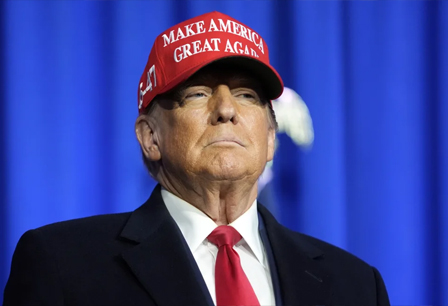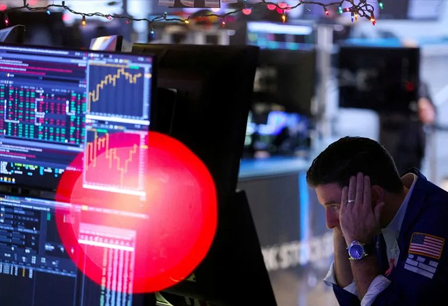There's arguably not a billionaire money manager that garners more attention on Wall Street than Berkshire Hathaway's (NYSE: BRK.A)(NYSE: BRK.B) chief, Warren Buffett. The accurately dubbed "Oracle of Omaha" has led his company's Class A shares (BRK.A) to a mouthwatering aggregate return of more than 5,600,000% since he became CEO almost six decades ago.
IFrame
Riding Buffett's coattails has been a surefire long-term investment strategy. Mirroring his trades is made simple thanks to required Form 13F filings with the Securities and Exchange Commission (SEC).
No later than 45 calendar days following the end to a quarter, institutional investors with at least $100 million in assets under management are required to file Form 13F with the SEC. This filing provides a concise snapshot of which stocks Wall Street's best money managers are buying and selling -- and there's no 13F more anticipated each quarter than Berkshire Hathaway.
Over the last two years, Buffett and his team have been decisive net sellers of stocks. Based on the seven quarters of cash flow statements from Berkshire Hathaway (from Oct. 1, 2022 through June 30, 2024), Buffett and his top investing aides, Todd Combs and Ted Weschler, have sold close to $132 billion more in stocks than they've purchased.
While no Warren Buffett stock has been given the heave-ho quite like Berkshire's No. 1 holding, Apple (NASDAQ: AAPL), the Oracle of Omaha is finding value in Wall Street's most prominent reverse stock split stock of 2024.
Buffett has sent over 515 million shares of Apple to the chopping block since October 2023
Amid Warren Buffett's selling spree, top holding Apple has been meaningfully reduced. In a three-quarter period from Oct. 1, 2023 through June 30, 2024, Berkshire's stake in Apple declined by more than 515 million shares, or 56%, to precisely 400 million shares.
Benign profit-taking may very well be the catalyst that enticed Buffett to ring the register. During Berkshire Hathaway's annual shareholder meeting in early May, he opined that the corporate tax rate would likely climb in the future. With his company sitting on a mammoth unrealized gain in Apple, he suggested that locking in some gains now at a lower tax rate would, eventually, be viewed favorably by Berkshire Hathaway's shareholders.
Furthermore, Buffett is a big fan of what CEO Tim Cook has done for Apple. He's overseeing a multiyear transformation designed to promote Apple's higher-margin Services segment, and has spearheaded the largest share buyback program of any public company. Since initiating share repurchases in 2013, Apple has bought back $700.6 billion worth of its common stock and reduced its outstanding share count by 42.2%. This has had a decisively positive impact on the company's earnings per share (EPS).
But in spite all of these positives, Apple's growth engine has stalled. Sales of its physical devices, including iPhone, iPad, and Mac, have been weak for much of the last two years. If a growth company's sales stall, it can expose its valuation premium.
When Berkshire Hathaway's brightest investment minds, including Buffett, first purchased shares of Apple in the first quarter of 2016, it was valued at between 10 and 12 times trailing-12-month (TTM) EPS. Today, Apple is valued at almost 36 times TTM EPS, which is a level that an ardent value investor like Warren Buffett would struggle to support -- especially with the company's sales stuck in neutral.
The Oracle of Omaha's broad-based selling also alludes to the lack of value on Wall Street. This is one of the priciest stock markets in history, and Berkshire's record cash pile of $276.9 billion plainly suggests that Buffett and his team are struggling to find attractive deals... with one exception.
The Oracle of Omaha can't stop buying shares of this unique stock-split stock
Amid Warren Buffett's record selling spree, there is one stock that he and his team can't stop buying. Interestingly enough, it's also the most prominent company to have completed a reverse stock split this year. I'm talking about satellite-radio operator Sirius XM Holdings (NASDAQ: SIRI).
In December, Sirius XM announced plans to merge with Liberty Media's Sirius XM tracking stock, Liberty Sirius XM Group. Liberty Media was the majority stakeholder in Sirius XM, but its three classes of tracking stocks rarely matched the performance of Sirius XM's common stock. Combining these shares into one class ended this confusion.
Meanwhile, completing a 1-for-10 reverse split lifted Sirius XM's share price from the mid-$2s to the mid-$20s following the merger. Whereas most reverse splits are undertaken from a position of operating weakness and are necessary to avoid delisting from a major stock exchange, Sirius XM was in no danger of delisting. This split was solely designed to get its shares back on the radar of high-profile money managers who might otherwise avoid stocks trading below $5 per share.
Over the past year, Buffett and his team built their stakes in two share classes of Liberty Sirius XM Group's stock, as well as Sirius XM Holdings. Based on a Form 4 filing with the SEC last week, which detailed the purchase of an additional 1.56 million shares of Sirius XM, Buffett's company now holds more than 110 million shares. This works out to almost a third of the company's outstanding shares.
Perhaps Buffett's favorite trait about Sirius XM is that it's a legal monopoly. Though it still competes for listeners with traditional radio operators, it's the only licensed satellite-radio company. Maintaining a legal moat should afford Sirius XM meaningful subscription pricing power and lead to predictable operating cash flow.
Berkshire's top investment minds have likely also noticed that Sirius XM's sales channels give it an inherent advantage over other radio companies. Whereas online and terrestrial radio operators rely heavily on ad spending, which is highly cyclical, Sirius XM brought in 77% of its net sales from subscriptions and roughly 19% from advertising through the first-half of 2024. Subscribers are far less likely to cancel their service during periods of economic turbulence than businesses are to cut their marketing budget.
Sirius XM possesses cost advantages over its peers, too. Specifically, its transmission and equipment expenses tend to be relatively static, regardless of how many subscribers the company has. If Sirius XM can grow its subscriber count over time, this would, presumably, lead to an expansion of its operating margin.
Lastly, there's a genuine value proposition with Sirius XM stock. Shares are trading at 8 times forward-year EPS, and its roughly $1.06 per share base annual payout works out to a nearly 4% dividend yield. Sirius XM is standing out in all the right ways for the Oracle of Omaha in a historically pricey stock market.












